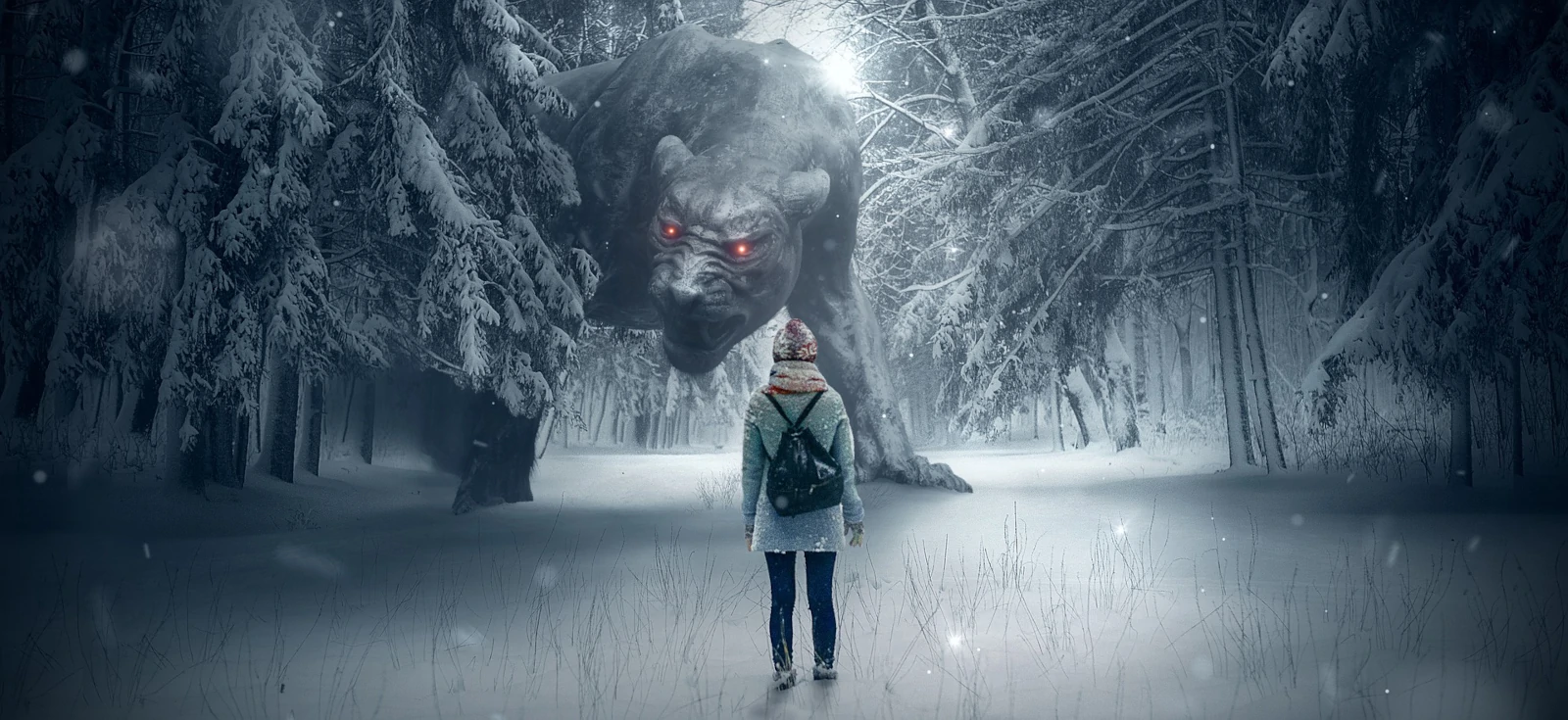
Naughty by Nurture
Words By Karen Brissette, Art By KELLEPICS
In celebration of the recent release of F(r)iction #16: Monsters, we bring you this monstrous read-along to intrigue and disturb…
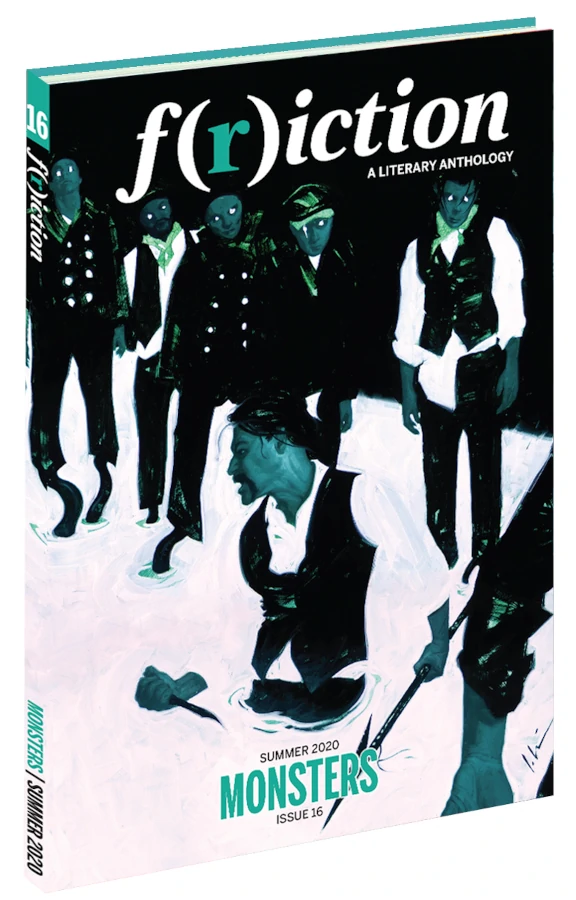
Sometimes a monster is just a sympathetic antihero with a bad publicist. Take that corpse Dr. Victor Frankenstein went and galvanized back to life with science and audacity. He wasn’t a monster by nature, he was off doing good deeds—fetching firewood and saving little girls from drowning. And all he got in return was yelled at and shot and betrayed, doomed to solitude after the literal one person qualified to be his wingman backed out of the deal, turning him from “chill dude” to “violent incel” in record time.
In the past few months, we’ve been spooked into greater caution by visual representations of ‘rona’s asymptomatic spread; horrified by thoughts of how many people we may have unknowingly infected by carelessly handling the grocer’s apples. But what if we could track not just disease, but damage? Everyone’s a villain in someone else’s story, but how many of us have been oblivious Victor Frankensteins, leaving monsters budding in our wake to become someone else’s problem?
Help stop the spread with this list of novels featuring sympathetic antiheroes and other morally dubious characters whose slides into the ethical gray were most likely preventable—their murrrders and other bad behavior simply defensive positions adopted in order to survive or correct injustices. Maybe, just maybe, identifying what motivates these “monsters” will help us avoid creating or becoming monsters ourselves. And wouldn’t it be nice to live in a world with slightly fewer monsters in it?
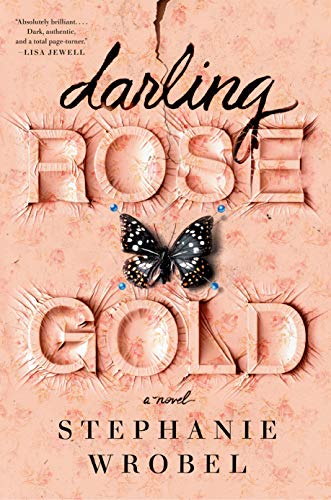
Darling Rose Gold
by Stephanie Wrobel
If you’re a mother with Munchausen by proxy, you’re going to intentionally make your child sick. It’s what you do. If you’ve kept your daughter weak, dependent, and wheelchair-bound for eighteen years before being caught and incarcerated, don’t make that relationship awkward by moving in with her and her baby when you get out. She’s definitely forgiven-forgotten those unnecessary surgeries, the hair loss and isolation, the years of poison-laced puke, and has in no way been masterminding her revenge all these years, but why risk her overreacting and doing something she won’t regret? You’ve already suffered so much.
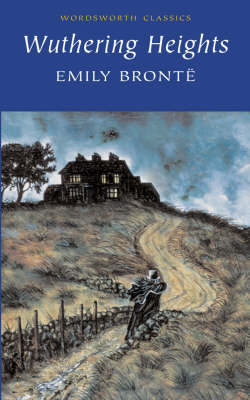
Wuthering Heights
by Emily Brontë
When you get jilted in love, you can choose to be gracious about it or make yourself scorch-the-earth unforgettable. Relationships are complicated; one person’s “monster” is another’s “wildly romantic Byronic hero,” and long before Gone Girl, “Banished Boy” Heathcliff invented using revenge as flirtation to fight for the one who let him get away. Overhearing Cathy scoffing that she could never marry him because “ew, poor,” he huffed outta town, returning three years later flashing “How u like me now?” money at Cathy and her Mister. Then he did his hair toss, checked his nails, married into the family, and destroyed everyone except his beloved, who for sure took him back into her… confidences.
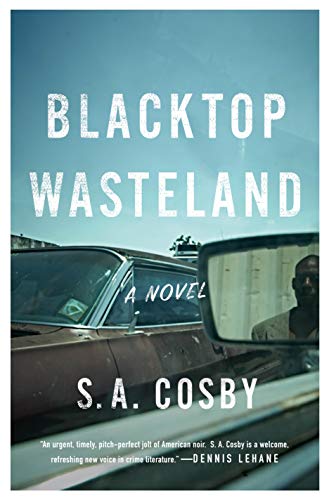
Blacktop Wasteland
by S.A. Cosby
Jean Valjean: patron saint of patriarchs, situational ethics, and…bread, whose whole “#sorrynotsorry for feeding my kid” deal is the template for the most sympathetic of antiheroes, the everyman doing the wrong thing for the right reason where the reason is invariably “family.” A getaway driver comes out of retirement for “one last job” to provide for his family, unwittingly ripping off some emphatically unsympathetic criminals in the process. When they threaten his wife and kids, he’ll do a lot more to protect them than just drive fast. Note to baddies: when you back someone into a corner, their only way out is through you.
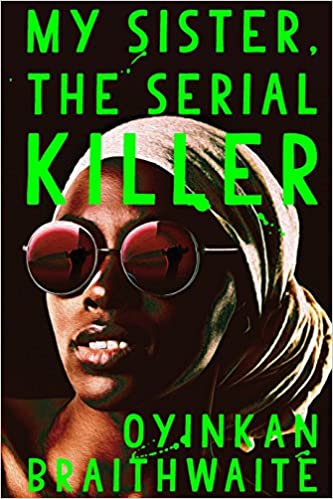
My Sister, the Serial Killer
by Oyinkan Braithwaite
Enabling a monster can be just as undesirable as creating one. Although we’ve established that vengeance is an acceptable response when it comes to threats against family, every relationship has its limits. And if this is the third time your sister has killed a lover in “self-defense” and come to you for help disposing of the corpse, it might be time to confront her about her problematic behavior. Consider staging an intervention before these murdery indiscretions get out of control. As the saying goes: Dowash the bloodstains from the floor, don’t wash your hands of responsibility—if you see something, say something!
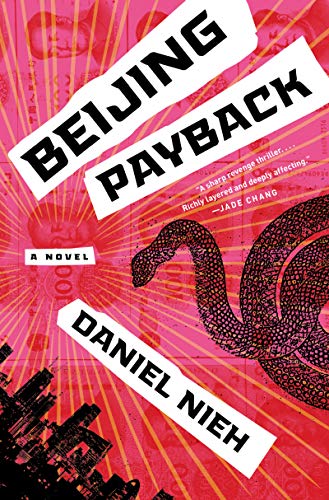
Beijing Payback
by Daniel Nieh
It’s difficult to “accidentally” make an assassin. You can accidentally make a killer, even a serial killer if you’re ambitious, but an assassin requires some grooming. So all you have to do to avoid making one is to NOT scoop an urchin off the Beijing streets and raise him into a life of organized crime. If you’ve already done that, you can balance the situation by leaving your protégé behind, moving to the California suburbs and starting a “straight” family there, telling your birth son nothing of your criminal past. And if worlds collide after you’re dead I’m sure it’ll be just fine.
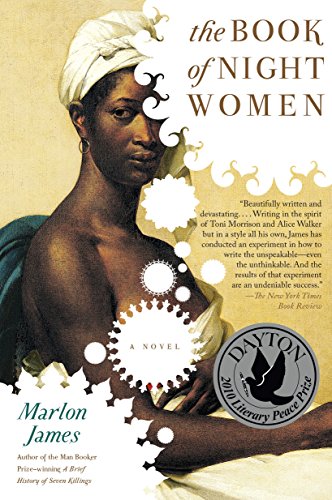
The Book of Night Women
by Marlon James
In the list of reasons why you shouldn’t own slaves, “to avoid creating an antihero,” doesn’t even make the top ten. But it’s a really long list, so it’s probably on there somewhere. Typically, the bigger the injustice = the more sympathetic the antihero = the more satisfying their revenge. Born into slavery by way of a plantation overseer’s rape of a fourteen-year-old slave girl who dies giving birth to her, Lilith is owed—and will inflict—some deeply satisfying revenge. As for “sympathetic”… well, not all antiheroes wear capes and Lilith’s not looking to be your movement’s poster child, tyvm.
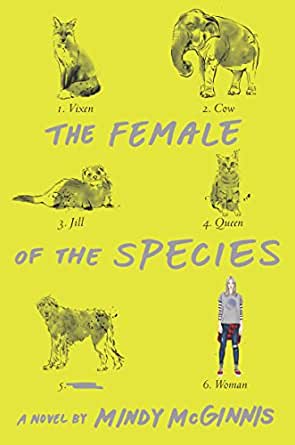
The Female of the Species
by Mindy McGinnis
Here in the afterglow of the Me Too movement, whose support empowered unprecedented numbers of survivors of sexual assault and abuse to come forward and fight for the justice they deserved, you almost want to discourage the teengirl vigilante from slaughtering the man who raped and murdered her older sister and got off on a technicality, because violence is never the blah. But a teenage girl is already nature’s most stubborn and unforgiving creature and once she’s pissed off, armed, and determined to right a few of rape culture’s wrongs, it really seems best to just stand aside and leave her to it.
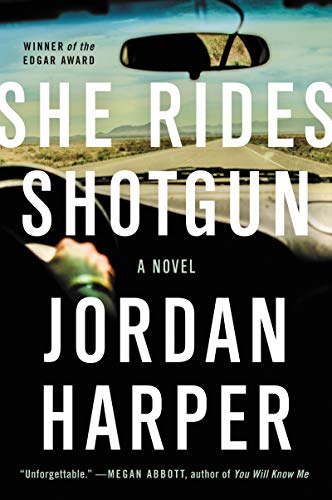
She Rides Shotgun
by Jordan Harper
If you’ve been released from prison with a bounty on your head for crossing an Aryan gang, you need to go on the run. You don’t need to take your eleven-year-old daughter with you. Unless the gang already murdered her mother and stepfather before you could warn them. Then you do need to take her with you but you don’t need to teach her how to use a gun. Unless she’s also being targeted and needs protection. So “yes” to going on the lam, “yes” to learning weaponry, fighting techniques and assorted criminal skills, but no tattoos ’til she’s twelve, ‘kay?
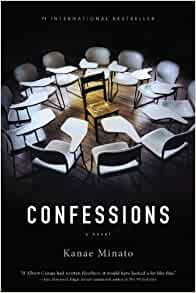
Confessions
by Kanae Minato
The biggest compliment a teacher can receive is that their students remember them years later, and those still alive at the end of this book will certainly never forget the lessons they learned. Because teachers also remember their students, especially the ones who have killed their only child. If anyone knows how to make a lesson sink in, it’s a teacher, and the final is going to be brutal. The low-hanging lesson here is “don’t kill people,” a piece of advice matryoshka’d inside a broader “don’t incite a mother’s wrath,” itself nestled in “don’t piss off people who are smarter than you.” Class dismissed.
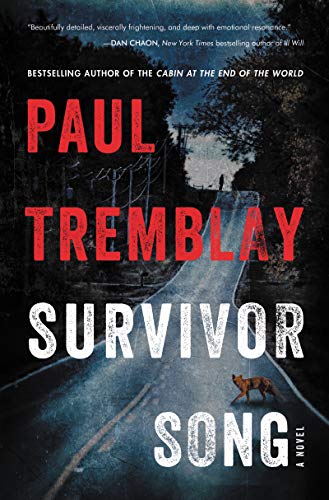
Survivor Song
by Paul Tremblay
Now for your homework: imagine a highly communicable virus (you can do it!) with a shortened incubation period; the disease spreading more rapidly than information about the disease, resulting in panic, hysteria, and misinformation; where roads become impassable as those already infected struggle to make it to already-overwhelmed hospitals and others try to flee, as the state is put under quarantine, curfews are established, individuals grow restless and resentful under restrictions…
Now imagine you’re a doctor whose best friend has come to you, pregnant, infected, and several-hours widowed. What wouldn’t you do to protect her? What takes priority: professional duty or personal loyalties? How slippery is the slope between desperation and the greater good? Are there still rules in the middle of chaos?
Enjoy!